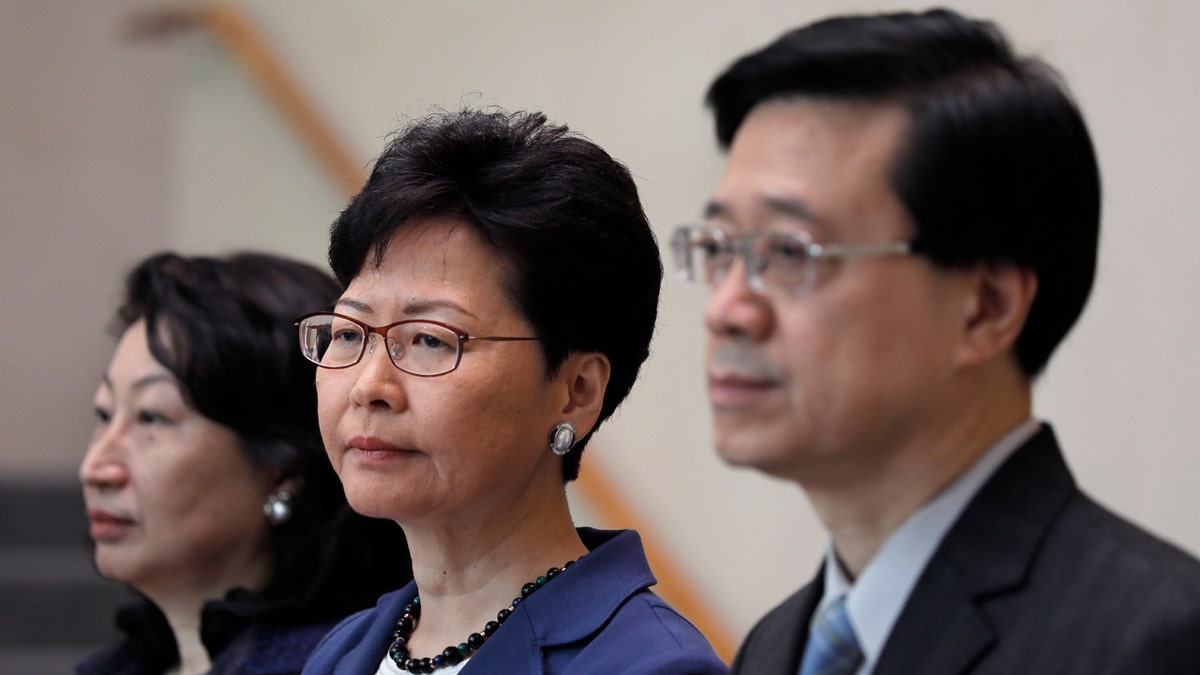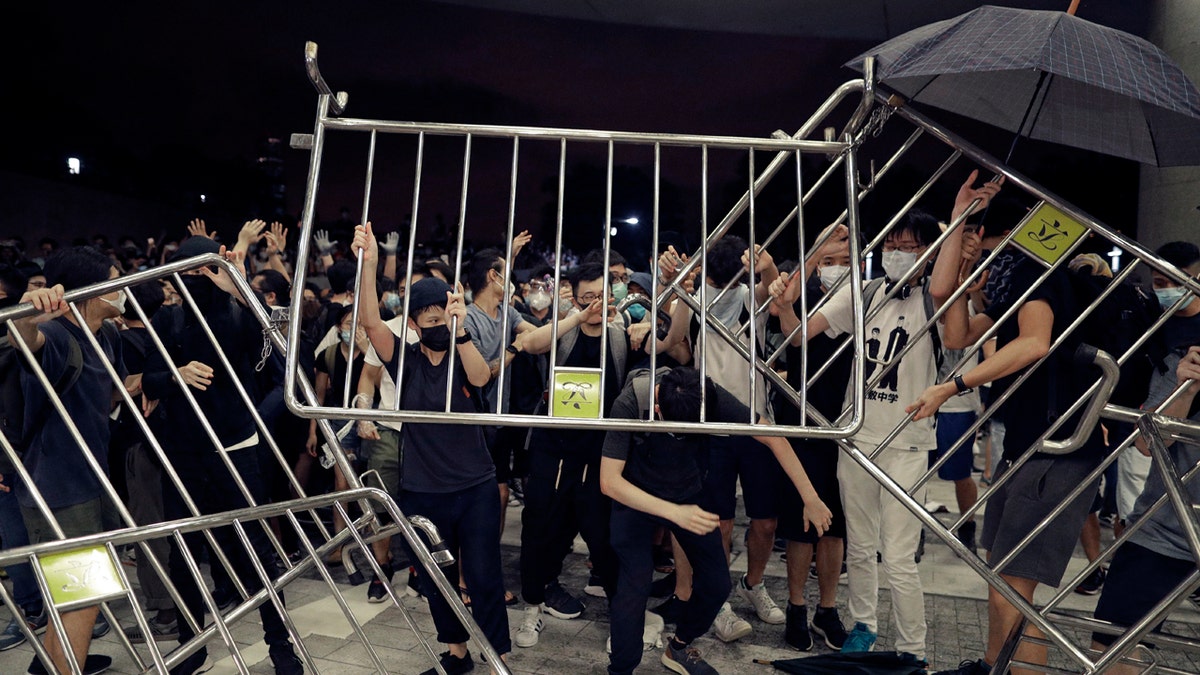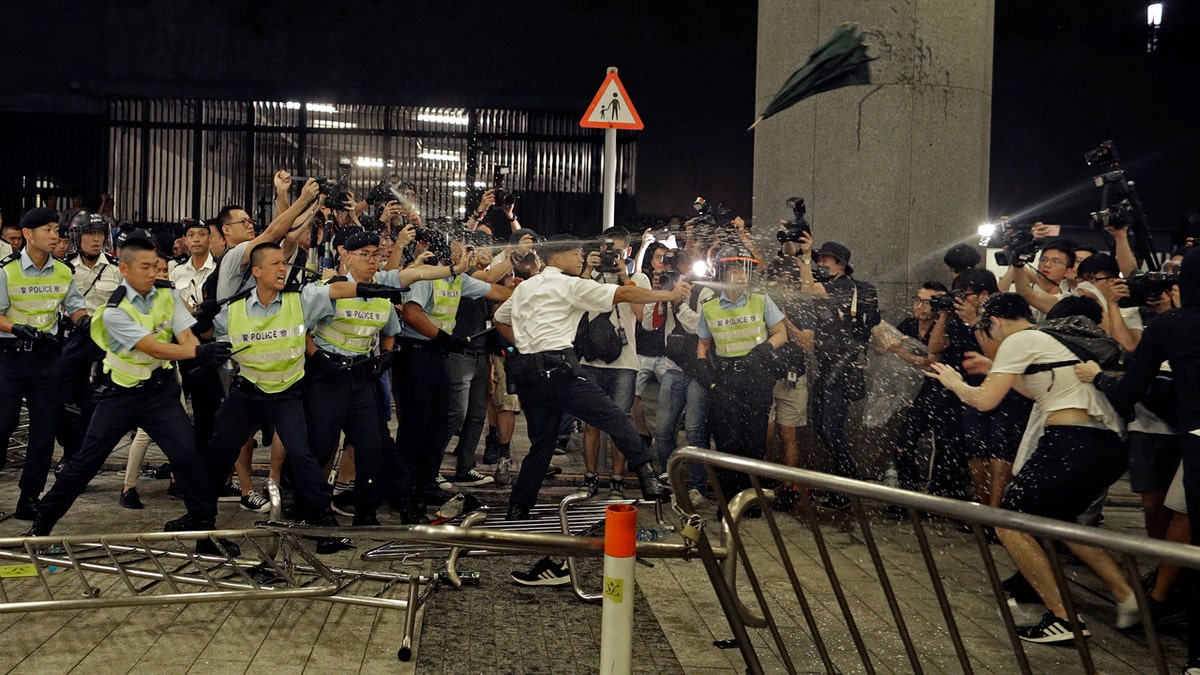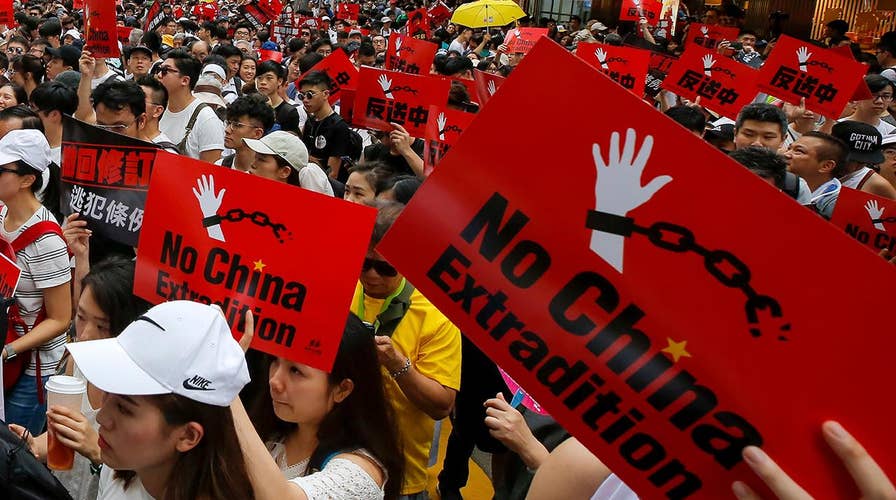Massive protests in Hong Kong as crowds rally against China extradition bill
Up to a million people took to the streets against a proposed bill which critics say is a major attack on the autonomy of Hong Kong; Benjamin Hall reports.
A controversial extradition bill that spurred massive protests and shut down the center of Hong Kong on Sunday will go forward, despite fears that mainland China's broadening footprint in the semi-autonomous territory could target critics.
Hong Kong Chief Executive Carrie Lam told reporters Monday that the law was necessary to "uphold justice" and fulfill its international obligations. Safeguards added in May will ensure that the legislation protects human rights, she said.
The extradition law amendments would allow Hong Kong to send people to mainland China to face charges, spurring criticism that defendants in the Chinese judicial system won't have the same rights as they would in Hong Kong. Opponents contend the proposed legislation could make Hong Kong residents vulnerable to vague national security charges and unfair trials.
HONG KONG PROTEST DRAWS HUNDREDS OF THOUSANDS OVER EXTRADITION BILL
Lam denied that she is taking orders from the central government in China's capital, and argued instead the protests showed how strong Hong Kong felt about committing to maintaining human rights.
"I have not received any instruction or mandate from Beijing to do this bill," she said. "We were doing it — and we are still doing it — out of our clear conscience, and our commitment to Hong Kong."

Hong Kong Secretary for Security John Lee, right, Hong Kong Chief Executive Carrie Lam, center, and Secretary of Justice Teresa Cheng listen to reporters questions during a press conference in Hong Kong Monday, June 10, 2019. (AP Photo/Vincent Yu)
Organizers told the South China Morning Post than a million people took to the streets of Hong Kong in the largest protest of more than a decade. The demonstrations refocused attention on the former British colony, whose residents have long bristled at what many see as efforts by Beijing to tighten control, and dominated newspaper front pages in a city that allows far more freedom of expression than other parts of China.
Hong Kong was guaranteed the right to retain its own social, legal and political systems for 50 years under an agreement reached before its 1997 return to China from British rule. But China's ruling Communist Party has been seen as increasingly reneging on that agreement by pushing through unpopular legal changes.

Protesters use barriers against the proposed amendments to the extradition law at the Legislative Council in Hong Kong during the early hours of Monday, June 10, 2019. (AP Photo/Vincent Yu)
During the protests, demonstrators of all ages and backgrounds chanted "no China extradition," while expressing their fears over the law, according to Sky News.
"If the law is implemented anyone can disappear from Hong Kong," teacher Garry Chiu, who was at the protest with his wife and one-year-old daughter. "No one will get justice in China. We know there is no human rights."
HONG KONG ACTIVIST VOWS TO RESIST EXTRADITION BILL
The protest that stretched past midnight into Monday was largely peaceful, though there were a few scuffles with police as demonstrators broke through barriers at government headquarters and briefly pushed their way into the lobby. Police in riot gear used batons and tear gas to push the protesters outside, as authorities eventually arrested 19 people in connection with the clashes.

Police officers use pepper spray against protesters in a rally against the proposed amendments to the extradition law at the Legislative Council in Hong Kong during the early hours of Monday, June 10, 2019. (AP Photo/Vincent Yu)
Three officers and one journalist were injured, according to Hong Kong media reports.
Hong Kong currently limits extraditions to jurisdictions with which it has existing agreements or to others on an individual basis under a law passed before 1997. China was excluded because of concerns over its poor record on legal independence and human rights.
CLICK HERE FOR THE FOX NEWS APP
In Beijing, Chinese foreign ministry spokesman Geng Shuang said China firmly backs the proposed amendments and opposes "the wrong words and deeds of any external forces" that interfere in Hong Kong's affairs.
"Certain countries have made some irresponsible remarks" about the legislation, Geng said, without elaborating.
Lam was elected in 2017 by a committee of mostly pro-Beijing Hong Kong elites. Critics have accused her of ignoring widespread opposition to the extradition law amendments, but she said she has no intentions of stepping down as the city faces economic instability, according to the South China Morning Post.
Agnes Chow, a prominent Hong Kong activist who opposes the bill, said Lam "ignored the anger of more than a million Hong Kong citizens."
The Associated Press contributed to this report.

